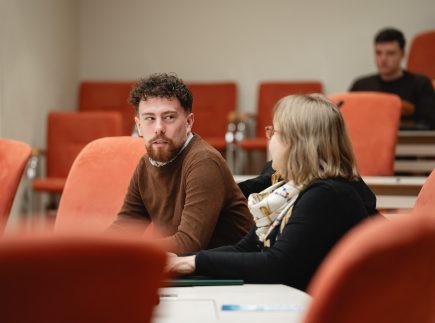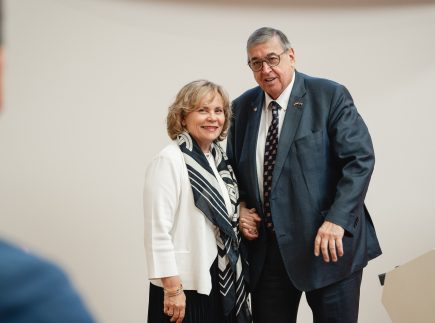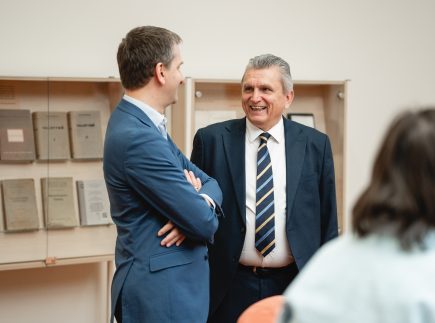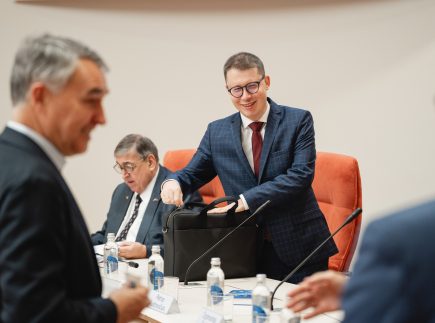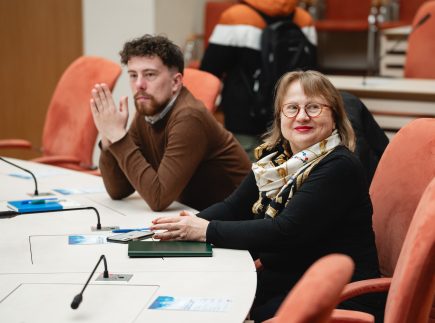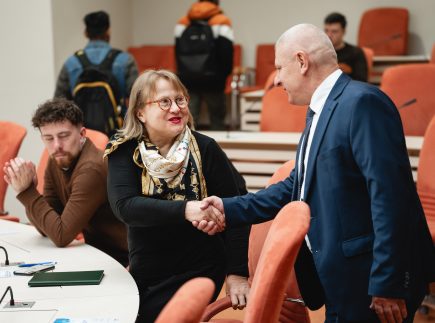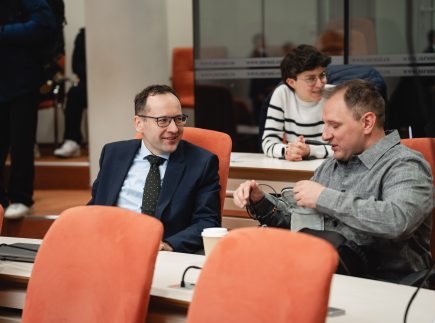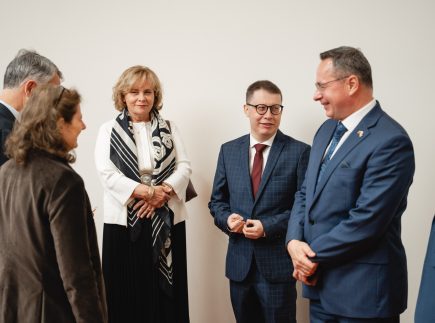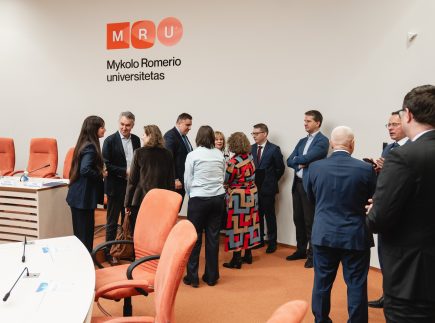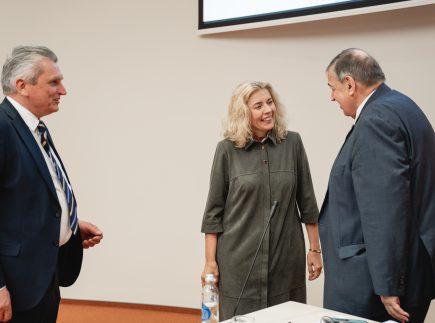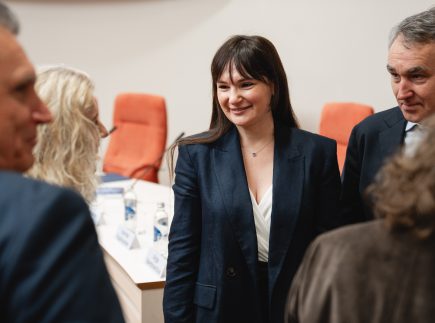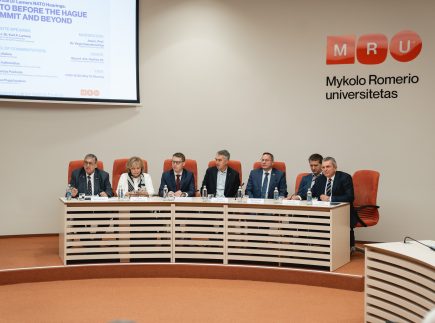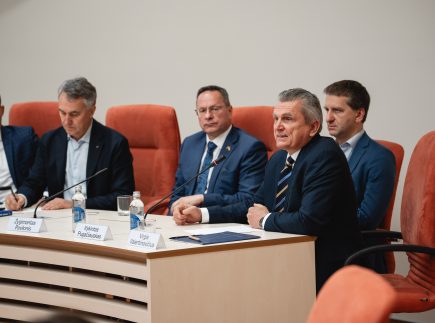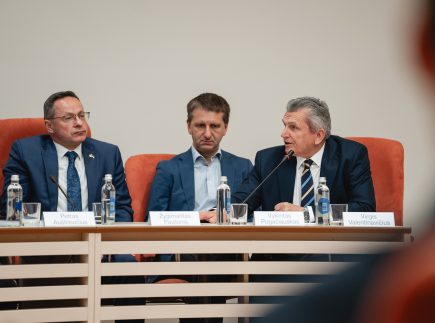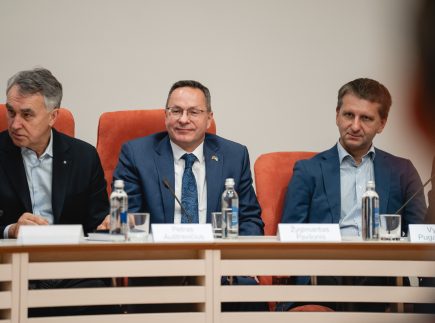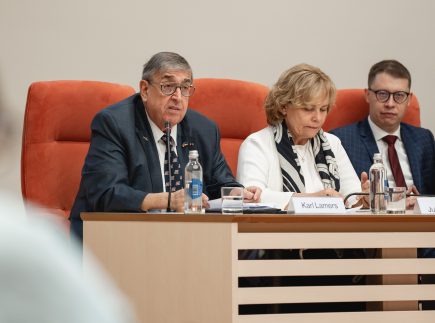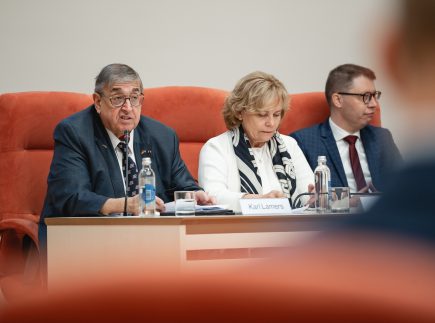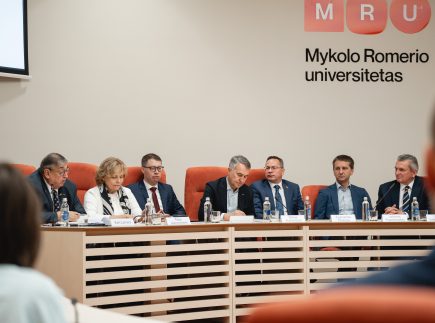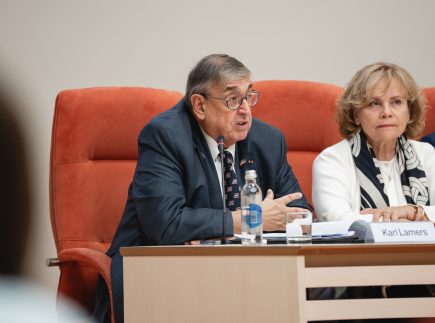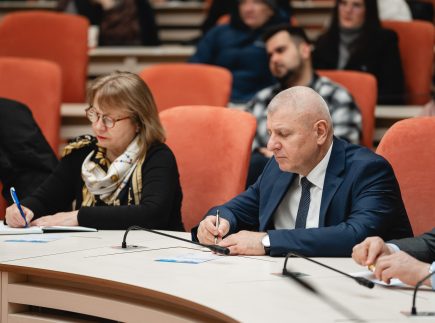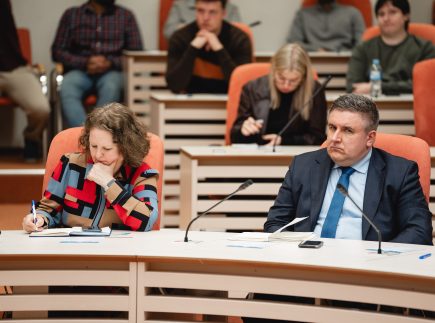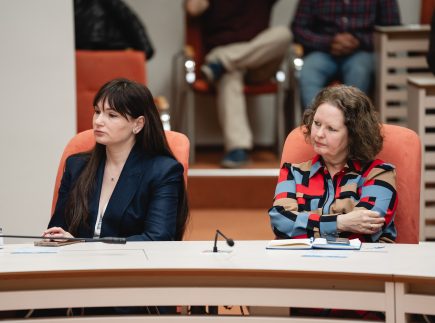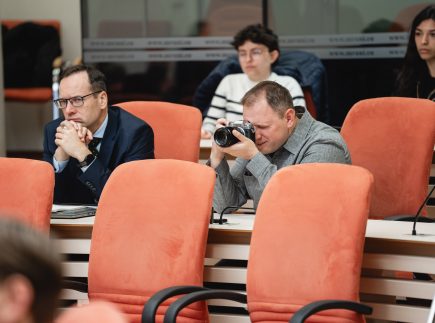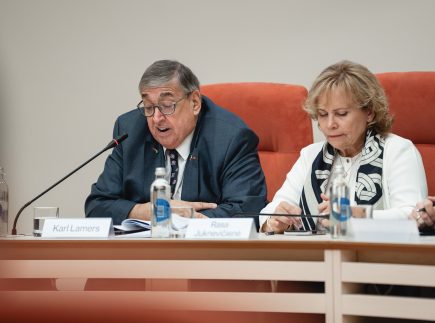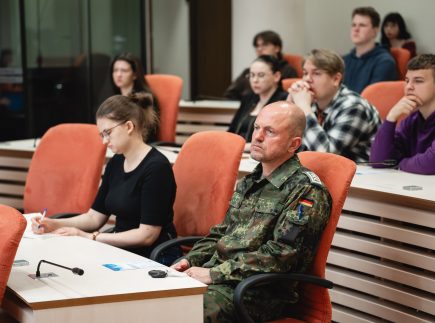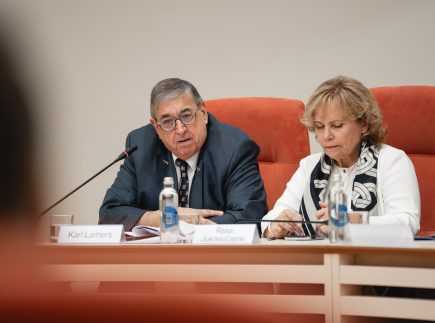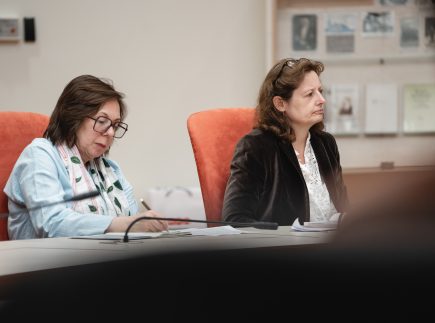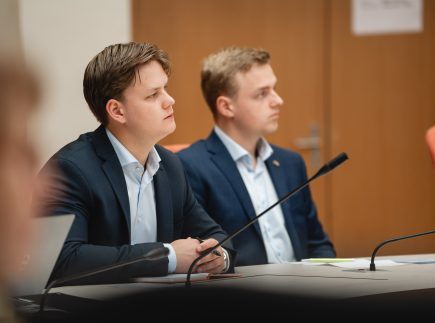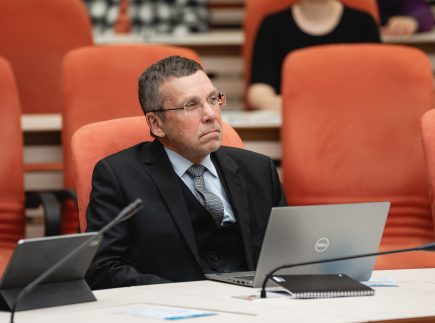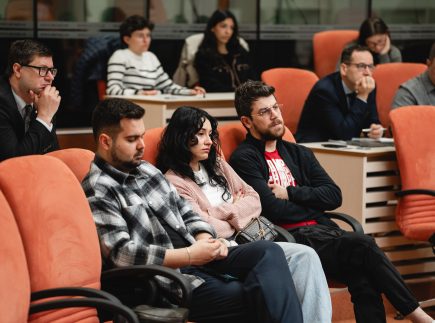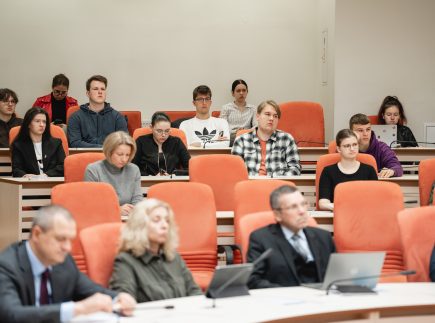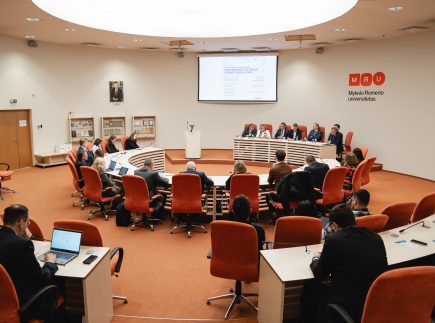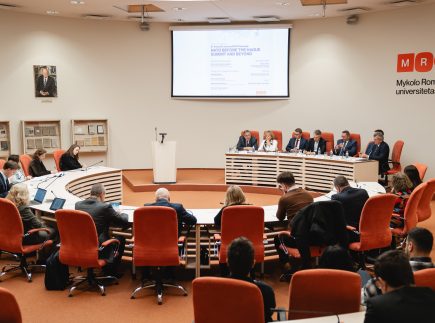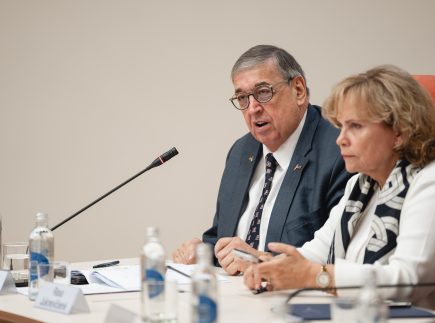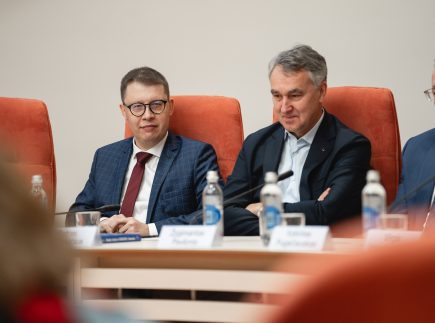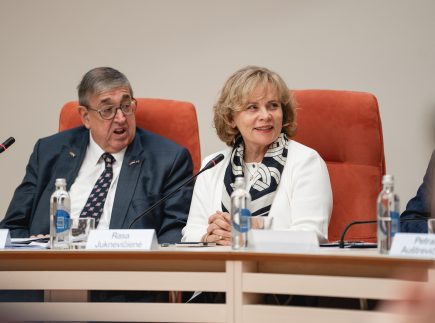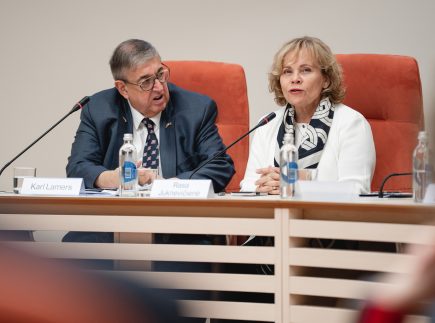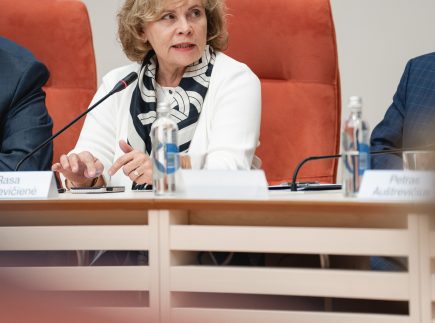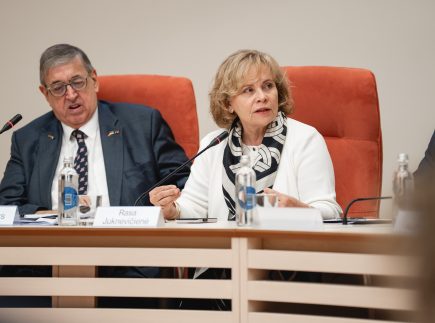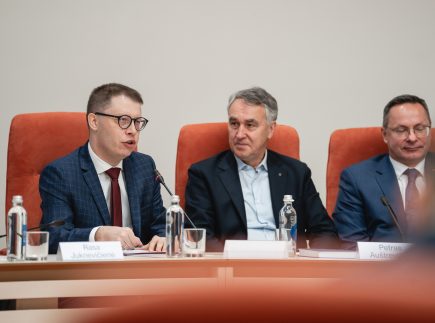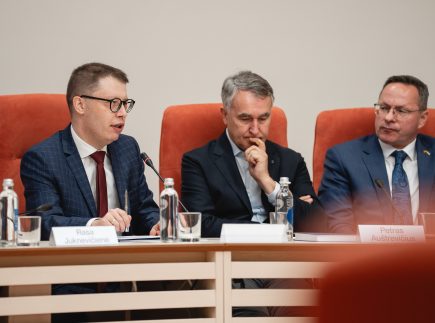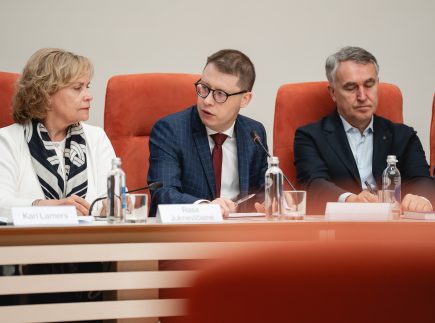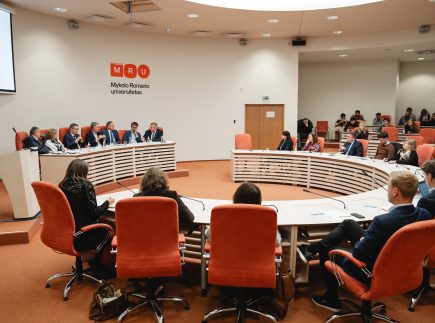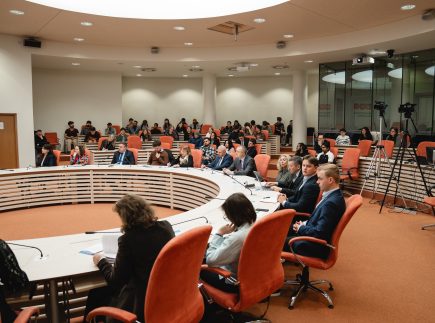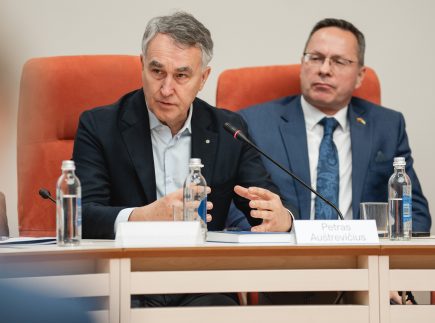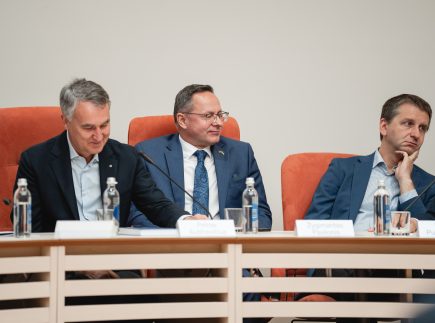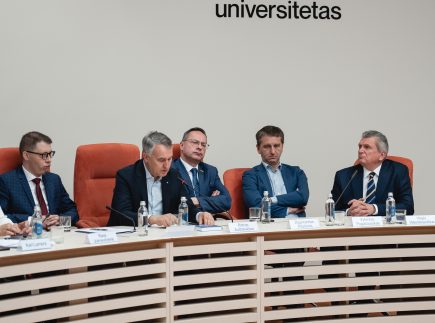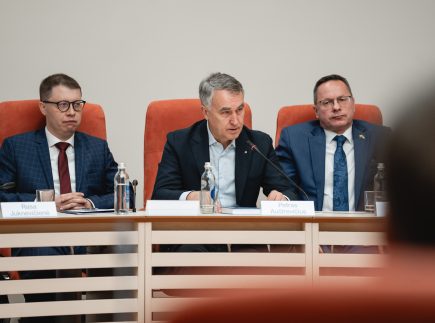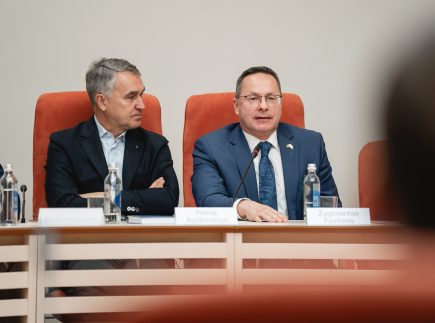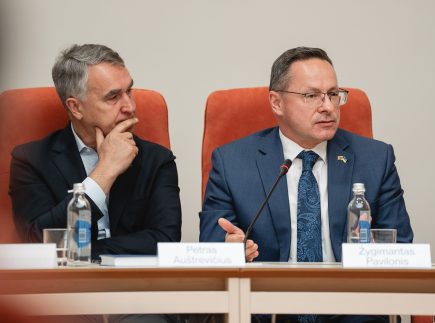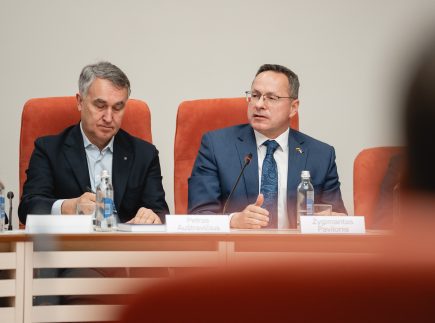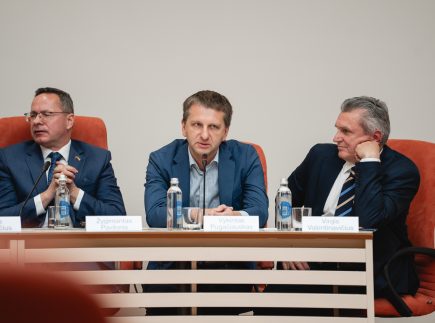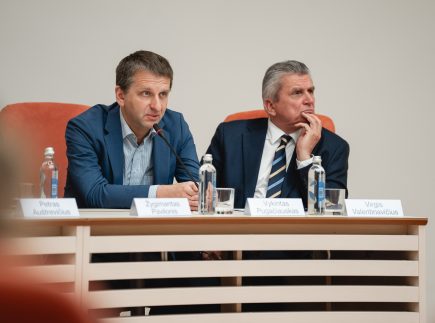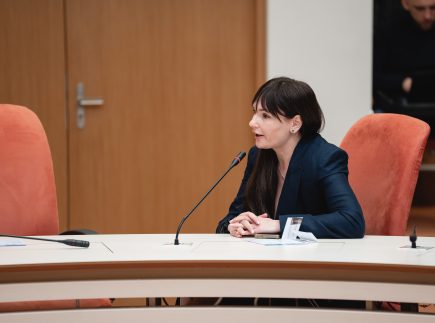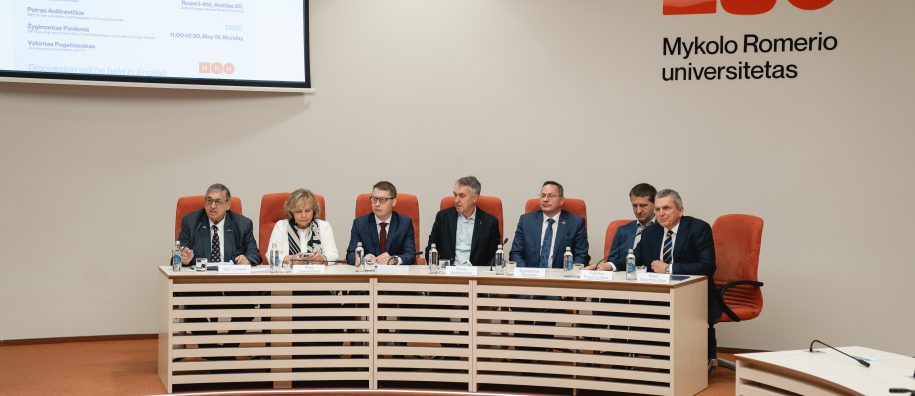
"World is going through a seismic shift, American dimension of NATO is less certain with Donald Trump in the White House, so we must work to make European pilar of NATO stronger," said Karl A. Lamers. He was speaking on May 19, 2025, at the eighth annual Dr. Lamers NATO Hearings at the MRU. This year the topic of the Hearings was NATO before the Hague Summit and beyond.
Prof. h. c. Dr. Karl A. Lamers, traditional keynote speaker at the Hearings, is a former long-time member of the Defence Committee of the Bundestag. He is the former President of the NATO Parliamentary Assembly, a renowned German lawmaker with decades of high-level experience in transatlantic security issues and an old friend of MRU.
Karl A. Lamers expressed his concern over roller coaster course United States of America are taking on security issues. He talked about shock caused by the infamous meeting when D. Trump and Vice President JD Vance humiliated Ukrainian President Volodymir Zelensky thus undermining historical dignity of the Oval Office.
At the same time K. Lamers believes Europeans need to do everything to keep Americans on board while building European military capacity in order to address Russian threat. “We need to send clear signal we stay together”, - said K. Lamers, as the real goal of Putin’s Russia’s aggression is not only Ukraine, but destruction of the established world order since “Putin is afraid of democracies more than of NATO”. Therefore, Kremlin dictator is attempting to create new world order together with other autocratic countries like China and the free societies cannot accept this new Putinist order.
As America under Trump has difficulties to steady it’s course, Europe must do more to counter Russian threat. The deployment of German brigade in Lithuanian was cited by Karl A. Lamers as an example that Europe can do more and is doing more to strengthen European defence.
First to talk after the keynote speaker was MEP Rasa Juknevičienė, former Lithuanian Defence Minister. She said that often repeated pledge of Western allies to help Ukraine as long as it takes is not enough, as it lays bare the lack of political will to work for Ukrainian victory, so it is better to change it to the more committed “to help Ukraine until victory against Russian invaders is achieved”.
Prof. Dr. Giedrius Česnakas, adviser at the Lithuanian Ministry of Defence, noted that Russia’s goals are not territorial, and was in agreement with K. Lamers that V. Putin is plotting new anti-democratic world order. He also warned that aggressor attacks not when you are ready to defend, but before, and that means that all work on building European defences against Russia must move much faster.
Petras Auštrevičius, member of European Parliament and former Lithuanian chief negotiator in EU access talks, then known as Lithuanian “Mister Europe”, proposed to return to the idea of European Defence Union which was promulgated in the early days of EU, when only 6 countries were members.
Next participant of the panel was Žygimantas Pavilonis, Vice-Chair and former Chair of the Foreign Affairs Committee of the Lithuanian Seimas, former Lithuanian Ambassador to the United States of America. He agreed that now focus must be on developing European defensive capacity, at the same time Europeans need to help Americans to understand the importance of the transatlantic unity.
Independent perspective in the hearings was presented by Vykintas Pugačiauskas, renowned journalist and a long-established authority on international and security issues, contributed quite pessimistic evaluation of the fracturing transatlantic unity. In his words, hard evidence points that United States under D. Trump are abandoning Europe and NATO may not have the future beyond the Hague NATO summit, and even that the rupture of transatlantic ties may already happened.
As a matter of intervention from the public, Ukrainian ambassador in Lithuania Olha Nikitchenko said that Ukraine deserves all possible political support and military supplies as Ukraine is on the frontline against aggression which is aiming to destroy democratic order and subdue Europe. Recently, O. Nikitchenko replaced former Ukrainian ambassador Petro Bieshto, who used to be a regular attendee at the Hearings.
The moderator of the Hearings traditionally was MRU Assoc. Prof. Dr. Virgis Valentinavičius from the Institute of Communication.
The Hearings were attended by a significant number of Ambassadors or representatives of the embassies of foreign countries based in Vilnius. In the audience there were numerous students and faculty of the MRU, as well as leaders of the management of the MRU, including Rector Prof. Dr. Inga Žalenienė.
Among the public there were students who are taking part in the academic essay competition, sponsored by Lamers Peace Foundation. The Foundation is funding the Peace Prize Competition, including provision of prize money: 1000 Euros for the winner, 600 Euros for the second place and 400 euros for the third place. More about the year 2025 Peace Prize Competition please read here.
Compiled by Assoc. Prof. Dr. Virgis Valentinavičius, Institute of Communication, MRU
